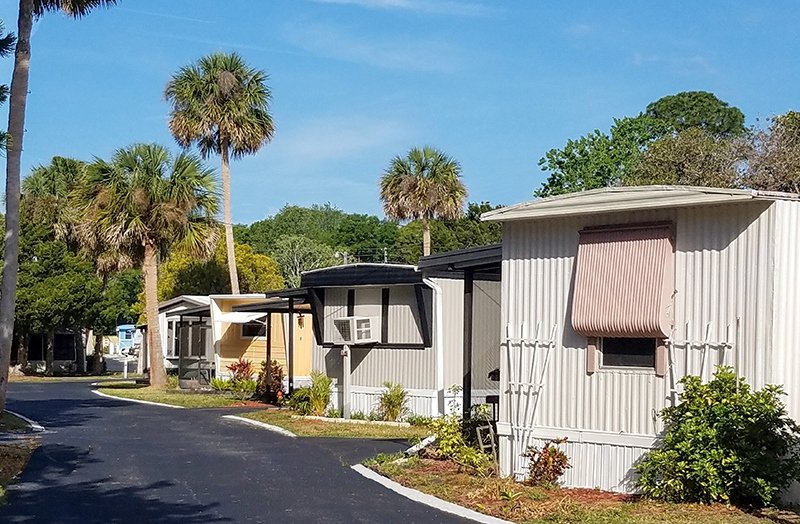Dixie Trailer Park is a notable example of a mobile home community that has captured the interest of residents, researchers, and media alike. Known for its unique blend of Southern charm and the challenges faced by its residents, Dixie Trailer Park represents a microcosm of broader socio-economic issues in the United States. This comprehensive exploration delves into the history of Dixie Trailer Park, the experiences of its residents, the impact of trailer parks on local communities, and the broader implications for affordable housing and urban development.
History of Dixie Trailer Park
- Origins and Development:
- Establishment: Dixie Trailer Park was established in the mid-20th century during a period of rapid suburban expansion and a growing demand for affordable housing. It was part of a larger trend of mobile home communities that emerged to provide cost-effective living solutions for a diverse population.
- Growth and Expansion: Over the decades, Dixie Trailer Park expanded to accommodate a growing number of residents. Its development mirrored the growth of similar communities across the United States, driven by economic factors and shifting housing preferences.
- Economic and Social Context:
- Post-War America: The post-World War II era saw significant changes in American housing. With the rise of the suburban lifestyle, trailer parks became a popular choice for those seeking affordable living arrangements. Dixie Trailer Park, like many others, catered to this demand by providing low-cost housing options.
- Economic Shifts: As the economy evolved, so did the demographics of trailer park residents. Changes in industry, employment patterns, and economic stability influenced who lived in trailer parks and how these communities were perceived.
Community Life at Dixie Trailer Park
- Demographics and Population:
- Resident Profiles: Dixie Trailer Park is home to a diverse group of individuals, including low-income families, retirees, and working-class people. The community’s demographic makeup reflects broader trends in mobile home living, with residents seeking affordable housing solutions.
- Community Dynamics: The dynamics within Dixie Trailer Park are shaped by its residents’ interactions, shared experiences, and common challenges. The close-knit nature of the community often fosters a strong sense of camaraderie and support among residents.
- Living Conditions and Amenities:
- Housing Standards: The quality of living conditions in Dixie Trailer Park varies. While some residents enjoy well-maintained homes and amenities, others face challenges related to aging infrastructure, maintenance issues, and limited resources.
- Community Amenities: Dixie Trailer Park offers a range of amenities, including communal spaces, recreational facilities, and basic services. These amenities play a crucial role in enhancing residents’ quality of life and fostering a sense of community.
- Challenges and Issues:
- Economic Hardships: Many residents of Dixie Trailer Park face economic difficulties, including low wages, job instability, and limited access to resources. These challenges impact their overall quality of life and contribute to the community’s struggles.
- Housing Stability: Mobile home parks often face issues related to housing stability, including rent increases, eviction risks, and inadequate maintenance. Residents of Dixie Trailer Park are not immune to these challenges, which can affect their housing security and well-being.
The Impact of Trailer Parks on Local Communities
- Economic Contributions:
- Local Economy: Trailer parks, including Dixie Trailer Park, contribute to local economies by providing affordable housing options and supporting local businesses. Residents spend money on goods and services within their communities, contributing to economic activity.
- Employment Opportunities: Trailer parks can create employment opportunities, both within the park itself (e.g., maintenance staff, management) and in nearby businesses that serve residents.
- Social and Cultural Impacts:
- Community Integration: Trailer parks often serve as important community hubs, fostering social connections and cultural exchange. Dixie Trailer Park, like many others, contributes to the social fabric of its surrounding area by bringing together a diverse group of residents.
- Cultural Identity: The cultural identity of trailer park communities is shaped by their residents’ shared experiences, traditions, and values. Dixie Trailer Park has its own unique cultural milieu, influenced by Southern traditions and the experiences of its residents.
- Challenges and Perceptions:
- Stigma and Stereotyping: Trailer parks, including Dixie Trailer Park, often face stigma and negative perceptions. Media portrayals and societal attitudes can contribute to stereotypes about mobile home living, affecting how residents are perceived and treated.
- Community Challenges: Trailer parks face a range of challenges, including issues related to infrastructure, maintenance, and community management. Addressing these challenges is crucial for improving residents’ quality of life and fostering a positive community environment.
Broader Implications for Affordable Housing and Urban Development
- Affordable Housing Crisis:
- National Trends: The rise of mobile home communities like Dixie Trailer Park is part of a broader trend in affordable housing. The increasing demand for affordable housing solutions has led to a growing reliance on trailer parks as a viable option for many individuals and families.
- Policy and Regulation: The affordability and stability of trailer parks are influenced by policy and regulatory frameworks. Addressing issues related to rent control, zoning, and mobile home park management is essential for ensuring that affordable housing options remain available and viable.
- Urban Development and Planning:
- Integration into Urban Planning: Trailer parks are an important consideration in urban planning and development. Integrating mobile home communities into broader urban development plans can help address housing needs while ensuring that these communities are well-maintained and supported.
- Infrastructure and Services: The quality of infrastructure and services in trailer parks is a critical factor in residents’ quality of life. Investing in infrastructure improvements and providing essential services can enhance the living conditions in communities like Dixie Trailer Park.
- Future Prospects:
- Innovative Solutions: The future of trailer parks may involve innovative solutions to address challenges related to affordability, sustainability, and community development. Exploring new approaches to mobile home design, community management, and policy can help improve the overall experience for residents.
- Community Resilience: Despite challenges, many trailer park communities, including Dixie Trailer Park, demonstrate resilience and adaptability. Fostering community engagement, supporting local initiatives, and addressing residents’ needs are key to ensuring a positive future for these communities.
Conclusion
Dixie Trailer Park represents a significant aspect of the mobile home community landscape, offering insights into the history, challenges, and contributions of trailer parks. As a microcosm of broader socio-economic trends, Dixie Trailer Park highlights the importance of affordable housing solutions and the impact of mobile home communities on local and national levels.
Understanding the history, community dynamics, and broader implications of trailer parks like Dixie Trailer Park provides valuable perspectives on the evolving nature of housing and urban development. By addressing challenges and embracing innovative solutions, we can work towards creating more sustainable, supportive, and equitable communities for all residents.



